Human Growth Hormone (HGH)
Showing all 6 results
-
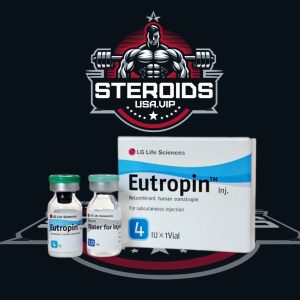
Eutropin 4IU
$60.50 Add to cart -
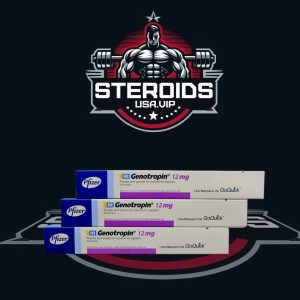
HGH 36IU
$605.00 Add to cart -
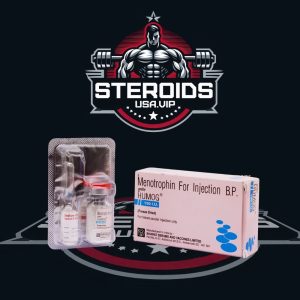
HMG 150IU (Humog 150)
$53.90 Add to cart -
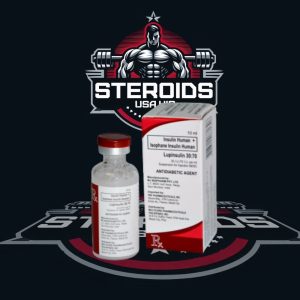
Insulin 100IU
$29.70 Add to cart -
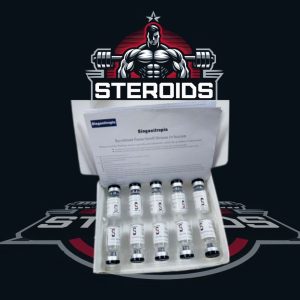
Singanitropin 100iu
$357.50 Add to cart -
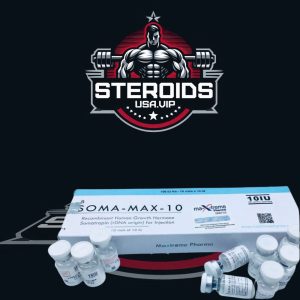
Soma-Max
$357.50 Add to cart
Introduction
Human Growth Hormone (HGH) is one of the most sought-after substances in bodybuilding due to its powerful effects on muscle growth, fat loss, and recovery. Produced naturally by the pituitary gland, HGH plays a crucial role in cell growth, regeneration, and overall metabolic processes. Bodybuilders often turn to synthetic HGH to enhance their physical performance and aesthetic goals. However, using HGH for bodybuilding comes with both benefits and risks. In this article, we will explore how HGH is used in bodybuilding, its benefits, potential side effects, and best practices for safe and effective use.
What is Human Growth Hormone (HGH)?
Human Growth Hormone (HGH) is a peptide hormone produced by the pituitary gland that stimulates growth, cell reproduction, and regeneration. It plays an essential role in childhood growth and continues to be involved in regulating various body functions, including metabolism, fat distribution, and muscle growth. In bodybuilding, synthetic HGH (somatropin) is often used to enhance muscle size, reduce body fat, and improve recovery times. Unlike anabolic steroids, which primarily focus on increasing testosterone levels, HGH affects a broader range of bodily functions, making it a powerful tool for athletes looking to improve their physique.
How HGH Works in Bodybuilding
In bodybuilding, HGH is used for its anabolic (muscle-building) and lipolytic (fat-burning) properties. Here’s how it works in the body:
- Muscle Growth: HGH stimulates protein synthesis in muscle cells, leading to increased muscle size and strength. It promotes the development of lean muscle mass by enhancing the proliferation of satellite cells, which are responsible for muscle repair and growth.
- Fat Loss: One of the most significant benefits of HGH is its ability to accelerate fat metabolism. HGH increases lipolysis (the breakdown of fat) by mobilizing fat stores for energy use, helping bodybuilders achieve a leaner and more defined physique.
- Recovery and Repair: HGH enhances recovery by promoting the repair of tissues, tendons, and ligaments. This is especially important for bodybuilders who engage in intense training and need to recover quickly between sessions.
- Improved Skin and Joint Health: HGH helps maintain the health and elasticity of the skin and strengthens connective tissues, reducing the risk of injury and supporting overall joint health.
Benefits of Using HGH in Bodybuilding
The use of HGH in bodybuilding offers several key benefits, especially when combined with a structured diet and training regimen. Here are some of the main advantages:
- Increased Muscle Mass: HGH promotes significant gains in lean muscle mass by enhancing protein synthesis and increasing nitrogen retention in the muscles.
- Enhanced Fat Loss: HGH’s fat-burning capabilities help bodybuilders shed excess fat, particularly around the abdomen, while preserving muscle tissue during cutting phases.
- Faster Recovery: HGH aids in faster recovery after intense workouts by promoting the repair and regeneration of muscle tissue, reducing downtime between training sessions.
- Improved Skin and Anti-Aging Effects: HGH improves skin elasticity and thickness, helping bodybuilders maintain a more youthful appearance. It also supports joint and bone health.
- Better Athletic Performance: The combination of increased muscle mass, reduced body fat, and faster recovery leads to improved strength, endurance, and overall athletic performance.
Potential Side Effects of HGH Use
While HGH can provide significant benefits in bodybuilding, it also comes with potential risks and side effects. Misuse or excessive use of HGH can lead to serious health problems, including:
- Acromegaly: Excessive HGH use can cause acromegaly, a condition characterized by abnormal growth of bones, particularly in the hands, feet, and face.
- Water Retention: HGH can cause water retention, leading to bloating and swelling, particularly in the extremities.
- Carpal Tunnel Syndrome: Prolonged HGH use may lead to carpal tunnel syndrome, causing numbness, tingling, and pain in the hands and wrists.
- Insulin Resistance: High doses of HGH can affect insulin sensitivity, increasing the risk of diabetes by impairing the body’s ability to regulate blood sugar levels.
- Increased Risk of Cardiovascular Problems: Long-term use of HGH can lead to an enlarged heart (cardiomegaly) and increase the risk of heart disease.
- Gynecomastia: HGH may contribute to the development of gynecomastia (enlarged male breast tissue) due to its effects on hormone balance.
How to Use HGH Safely in Bodybuilding
To minimize the risks associated with HGH use, it’s essential to follow best practices and use it responsibly. Here’s how to safely incorporate HGH into a bodybuilding regimen:
1. Dosage and Cycle Length
The dosage of HGH depends on the individual’s goals. Bodybuilders typically use 2-4 IU (International Units) per day for fat loss and anti-aging benefits, while doses of 4-8 IU per day are used for muscle growth and performance enhancement. However, doses above 5 IU increase the risk of side effects. HGH is generally used for extended periods, with cycles lasting anywhere from 12 to 24 weeks.
2. Injection Timing
HGH is usually administered via subcutaneous injections. For optimal results, bodybuilders often inject HGH first thing in the morning on an empty stomach, as natural growth hormone levels are highest during sleep. Some users split their daily dose into two injections—one in the morning and one post-workout—to maximize the hormone’s benefits.
3. Combining HGH with Other Compounds
HGH is often stacked with anabolic steroids or peptides to enhance its effects. For instance, stacking HGH with testosterone can lead to greater muscle gains, while combining it with insulin-like growth factor (IGF-1) can amplify its anabolic properties. However, combining HGH with other compounds increases the risk of side effects, so careful planning and monitoring are required.
4. Monitoring for Side Effects
Regular monitoring through blood tests is crucial when using HGH to ensure hormone levels remain within a healthy range. It’s also important to watch for early signs of side effects, such as swelling, joint pain, or elevated blood sugar levels, and adjust the dosage or stop using HGH if necessary.
Legal Status of HGH
The legal status of HGH varies by country. In the United States, HGH is classified as a prescription drug and is legally available only for specific medical conditions, such as growth hormone deficiency or HIV/AIDS-related muscle wasting. Its use for bodybuilding or athletic enhancement is illegal without a prescription. Bodybuilders should be aware of the legal implications of using HGH without medical supervision and the potential penalties for illegal possession or use.
Natural Alternatives to HGH
For those who want to avoid the risks and legal concerns associated with synthetic HGH, there are natural alternatives that can help boost growth hormone levels naturally:
- GABA (Gamma-Aminobutyric Acid): GABA is a neurotransmitter that has been shown to increase growth hormone levels by promoting relaxation and deep sleep.
- L-Arginine and L-Ornithine: These amino acids can stimulate the release of growth hormone, particularly when taken before sleep or exercise.
- Melatonin: This natural sleep aid can help increase growth hormone levels by improving the quality of sleep, during which most HGH is produced.
- High-Intensity Exercise: Engaging in high-intensity workouts, especially weight training and sprinting, can naturally boost HGH production.
Conclusion
Human Growth Hormone (HGH) is a powerful tool in bodybuilding, offering significant benefits in terms of muscle growth, fat loss, and recovery. However, its use comes with potential risks, including serious side effects like acromegaly, insulin resistance, and cardiovascular issues. Bodybuilders who choose to use HGH should do so responsibly, following recommended dosages, cycle lengths, and best practices for safe administration. Additionally, regular monitoring through blood tests is crucial to ensure that hormone levels remain within a healthy range. For those who prefer to avoid synthetic HGH, natural alternatives can offer a safer approach to boosting growth hormone levels and achieving bodybuilding goals.